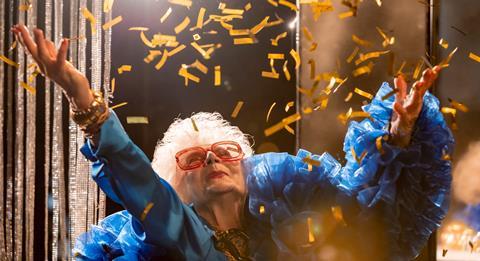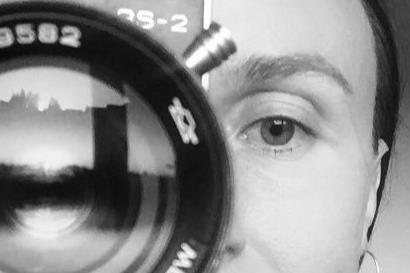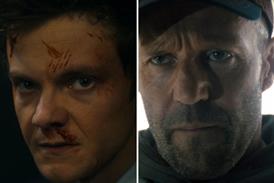
Polish filmmaker Agnieszka Zwiefka’s feature documentary Vika!, is screening this week at the Vilnius International Film Festival (VIFF) in Lithuania as part of the 15th birthday celebrations of the industry gathering Meeting Point Vilnius (March 24-27)
Zwiefka mixes observational documentary with scripted musical scenes. to celebrate the life of Wirginia “Vika” Szmyt, an 84-year-old Lithuania-born, Poland-based DJ who refuses to dance to the norms of ageing. The film sees how she parties like there is no tomorrow while also working to support the elderly, the disabled, and LGBTQ+ people.
The director is in Vilnius fresh from a visit to Denmark’s CPH:DOX festival where her latest HBO Max -backed documentary Silent Trees made its world debut. Combining animation with documentary footage, it details the story of a 16-year-old Kurdish refugee who has to grow up quickly and take care of her four younger brothers, as well as her father after the death of her mother on the Polish-Belarusian border.
Vika! is produced by Katarzyna Ślesicka and Anna Stylińska for HBO Max and Warner Bros Discovery; Germany’s Deckert Distribution has international rights. It was Hanka Kastelicova, vice president and executive producer of documentaries for HBO Max in Europe, who backed Zwiefka’s idea from the get go.
Zwiefka talks to Screen about convincing her protagonist to participate and how she was driven by her own fear of becoming invisible in society.
Vika! seems to be more light-hearted than your other documentary work. How did the film come about?
It’s the only film in my career that I can honestly call a feelgood movie. At the centre of Vika! is a normal life of maybe not a normal senior citizen, rather an extraordinary one, but there are no real dramas. It’s just about something that all of us will have to face at some point if we are lucky enough to live that long which is ageing and losing some of your abilities whether psychological, intellectual or physical.
This is something I’m scared as hell of. Every year on my birthday I disappear. I do not accept any birthday wishes. One of my biggest fears is not death, but the fear of ageing and not being myself. I made this film to convince myself and hopefully others that ageing doesn’t mean becoming grey, invisible or having to lose yourself. This story shows you can still age on your own terms and be this colourful diva if you wish.
How did you first meet Vika?
She was known in Poland as this elderly woman standing out from the senior community in Poland. In my country, but also in all of the Eastern Europe, the senior citizens are rather grey and they lock themselves inside apartments, make sacrifices for their families. They do not dare to live their own lives anymore. Vika is so different from that.

Was she happy for you to make a film about her?
When I approached Vika [in 2018] and I asked her if we can make this film she told me, and I quote, to “fuck off”. I kept coming back, coming back until we became good friends.
It is a long time to work on one film because it doesn’t have any dramas, tragedies, breakthrough points. It’s just about observing life and observing life means you have to spend a lot of time doing that.
How did your backers feel about that?
I was very lucky to have Hanka (Kastelicova) on board from the very beginning. HBO Max Originals support made this film possible.
How did you approach making musical sequences for the film?
The way I work on such hybrid films is that first we film the documentary layer of the film, strictly observational, fly on the wall, we do not interfere. Then we look for scenes that we can use as bridges to transport us into this other dimension. This is when I script the musical scenes.
We have casting, choose the right songs, choreograph rehearsals.
What was the hardest part of making this documentary?
I’m very confident about shooting scripted scenes because you have control. In the documentary layer you don’t always have control over your protagonists. The hardest part was opening up Vika because she is a very secret person. Her public persona is something everyone can have access to. But all the things that are very intimate and painful as well as her past during the Second World War or her difficult family relationships, took time to dig into.
All protagonists have masks. We all do; we all want to be perceived in a certain way. And the key role of a documentary film director is to take this mask off.
Have you partied to Vika’s DJ sets?
Over 100 times! Now the film is being released in cinemas in Poland and upcoming in Germany, Vika is also playing gigs after the screenings. Her schedule is more busy than the American president’s.
What do you hope international audiences will take from Vika!?
I made this film for people to smile and leave the cinema feeling better about life, instead of worse as we usually do when we leave a cinema after seeing a hardcore documentary film.

























No comments yet